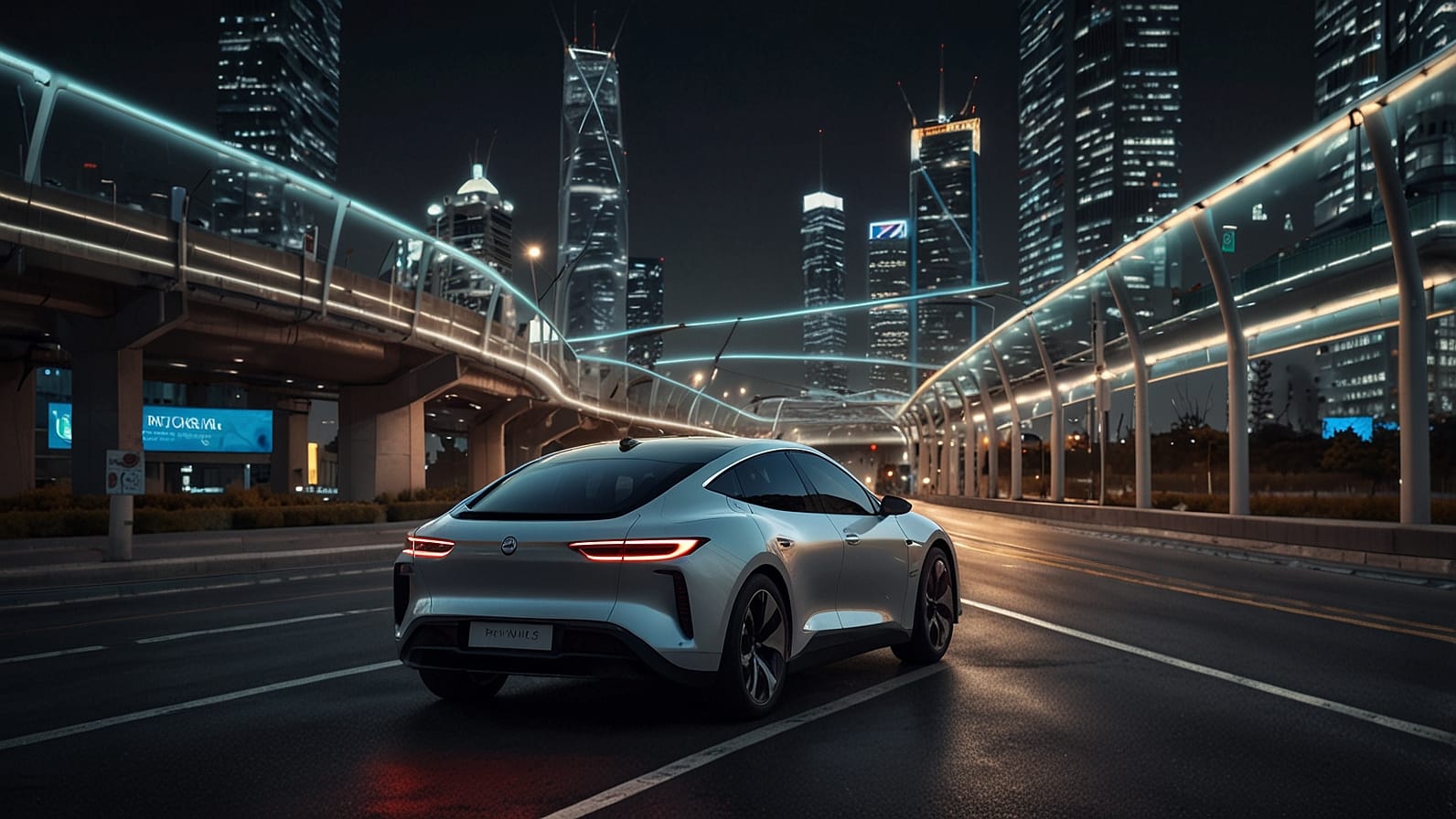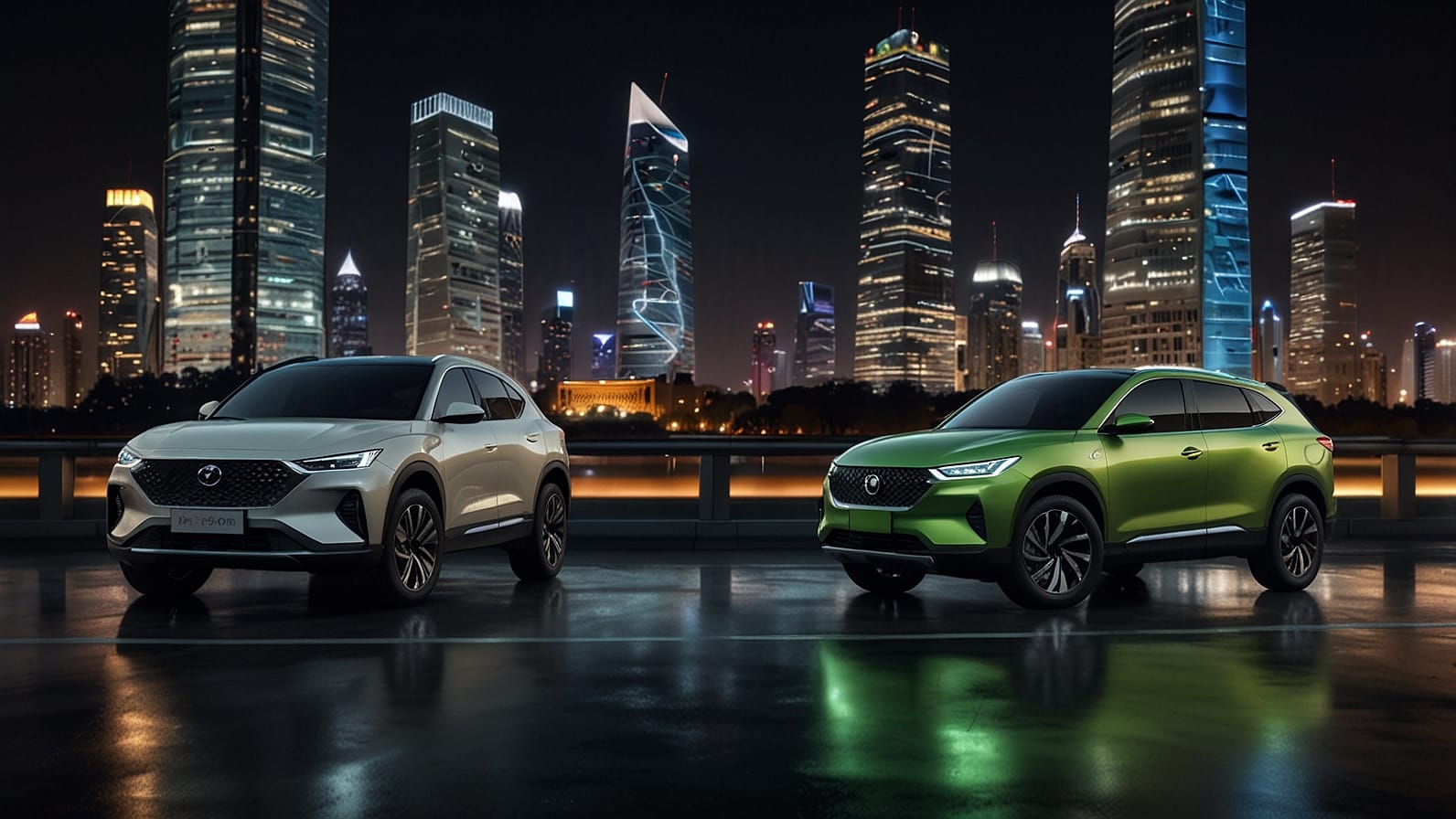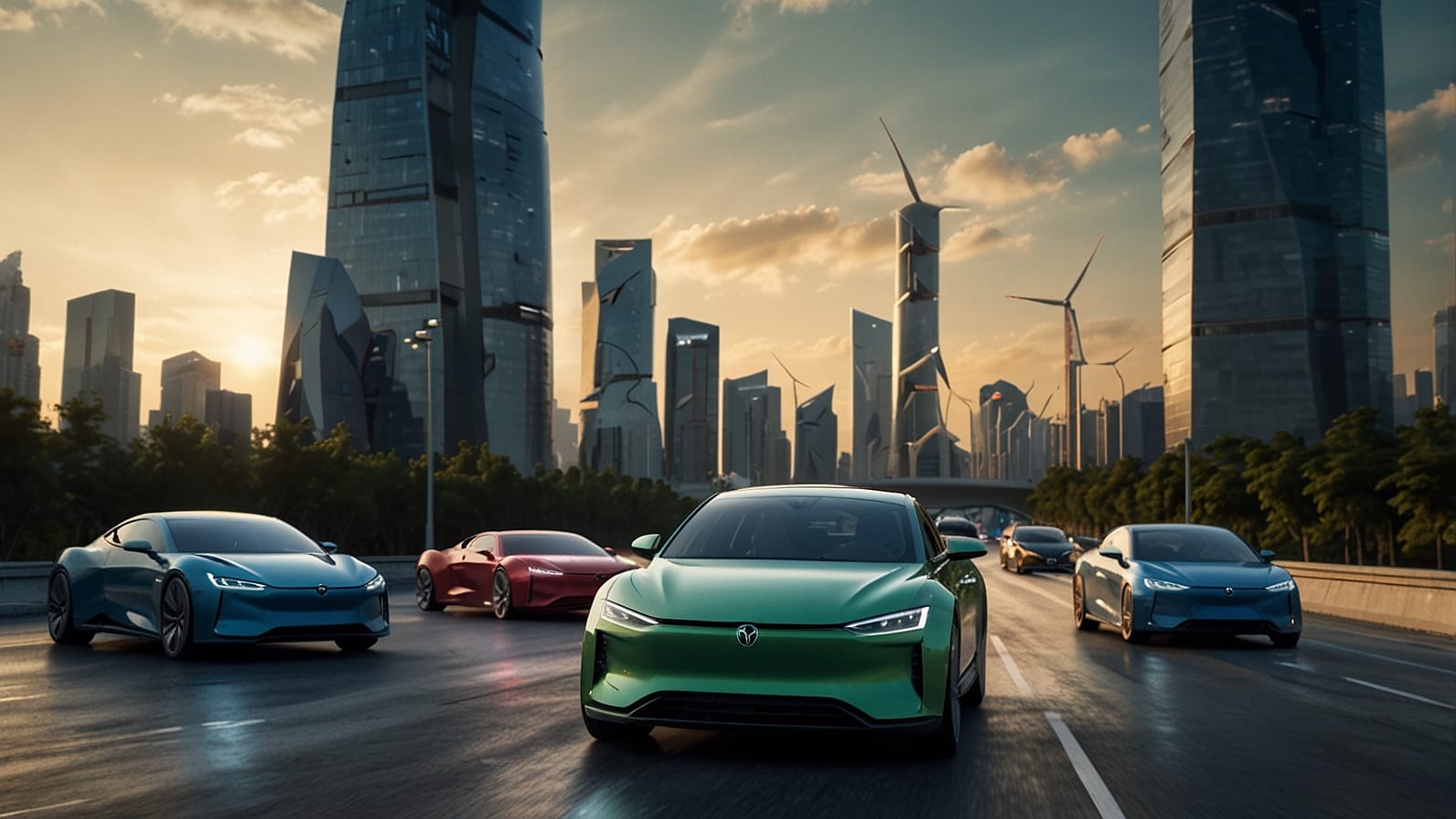The global automotive industry is undergoing a significant transformation, and at the heart of this shift are electric vehicles (EVs). While many countries are contributing to the EV revolution, China stands out as a leader, not only in production but also in innovation and market growth. Chinese electric vehicles are disrupting the traditional automotive landscape and reshaping the future of mobility. Here’s how Chinese EVs are revolutionizing the automotive industry.
1. Global Leadership in EV Production

China is the world’s largest manufacturer of electric vehicles, accounting for more than half of global EV sales. Brands like BYD, NIO, XPeng, and Li Auto have become household names not just in China, but increasingly on the global stage. Chinese manufacturers are producing EVs at a scale unmatched by any other nation, making electric cars more accessible to the average consumer.
China’s dominance in EV production is also driving down the cost of electric vehicles. By mass-producing EVs and investing heavily in research and development, Chinese companies are able to offer competitively priced models with cutting-edge technology. This affordability is making electric vehicles a more viable option for consumers worldwide.
2. Innovation in Battery Technology

One of the key challenges for the EV industry has always been battery technology—specifically, the cost, efficiency, and range of batteries. Chinese companies are at the forefront of addressing these challenges. BYD’s “Blade Battery” technology, for example, offers a safer, longer-lasting, and more efficient battery solution that significantly reduces the risk of overheating and extends vehicle range.
Additionally, China is home to the largest producers of lithium-ion batteries, such as CATL (Contemporary Amperex Technology Co. Limited). These companies are continuously working on innovations that will improve battery efficiency, reduce charging times, and lower overall costs, helping to push the entire industry forward.
3. Autonomous Driving and AI Integration

Chinese electric vehicle manufacturers are heavily investing in autonomous driving technology. Brands like NIO and XPeng are leading the way with their advanced driver-assistance systems (ADAS) and autonomous driving features. NIO’s “NOMI,” an in-car AI system, offers voice interaction, navigation, and entertainment, creating a smart driving experience that adapts to the user’s needs.
XPeng, on the other hand, has developed XPILOT, a system that uses AI to offer semi-autonomous driving capabilities. These advancements are positioning Chinese EVs as leaders in the race to fully autonomous driving, with the potential to revolutionize how we think about transportation.
4. Battery Swapping Technology

One of the unique innovations that Chinese automakers, particularly NIO, have pioneered is battery swapping. Instead of waiting for an EV to charge, drivers can simply swap out their depleted battery for a fully charged one in a matter of minutes at designated battery swap stations. This technology addresses one of the main concerns of potential EV buyers—charging time—making electric vehicles even more convenient for long-distance travel.
NIO has already deployed thousands of battery swap stations across China, with plans to expand internationally. This infrastructure is a game-changer for the EV industry, providing a solution to range anxiety and making EV ownership more practical.
5. Government Support and Policy

China’s government has played a pivotal role in accelerating the adoption of electric vehicles. Through generous subsidies, tax incentives, and investment in charging infrastructure, the Chinese government has made it easier for consumers to switch to EVs. Policies promoting the development of renewable energy and reducing carbon emissions have also spurred demand for electric vehicles.
In addition, China’s “dual credit” policy incentivizes automakers to produce more EVs by requiring them to meet strict emissions targets. This policy has encouraged both domestic and international manufacturers to focus on EV production, further boosting China’s dominance in the global electric vehicle market.
6. Global Expansion of Chinese EV Brands

While Chinese electric vehicles have already captured a significant share of the domestic market, many companies are now setting their sights on international expansion. Brands like BYD and NIO are entering Europe and other regions, bringing their advanced technology and affordable models to new consumers.
This global expansion is not only increasing competition for established automakers like Tesla, but it is also driving innovation across the industry. Chinese EV brands are introducing new design concepts, technological advancements, and production efficiencies that are forcing other manufacturers to rethink their strategies.
7. Sustainability and Environmental Impact

One of the key drivers behind the rise of electric vehicles is the growing concern for the environment. Chinese automakers are playing a crucial role in reducing carbon emissions and promoting sustainability. By producing electric vehicles on such a large scale, China is helping to reduce the global dependence on fossil fuels and lower greenhouse gas emissions.
In addition to producing electric vehicles, Chinese companies are also investing in renewable energy sources like solar and wind power to reduce the carbon footprint of EV production. This commitment to sustainability is positioning China as a leader in the global transition to greener, more eco-friendly transportation.
Conclusion
Chinese electric vehicles are not just changing the automotive industry in China—they are revolutionizing the entire global market. From leading in EV production to pioneering new technologies like battery swapping and autonomous driving, Chinese automakers are setting new standards for innovation, affordability, and sustainability. As the world moves toward a more electric future, it’s clear that China will continue to play a central role in shaping the next generation of vehicles.
Whether you’re a consumer considering an electric vehicle or a business looking to stay ahead of industry trends, Chinese EVs are the ones to watch in the years ahead.



